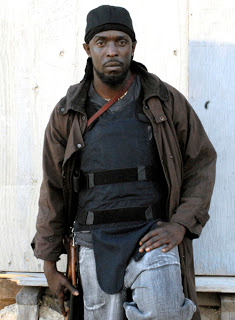Yo. I haven’t written about Your Fantasy Setting in a while. Last time I did one of these, we talked about economy, and fleshing out your game’s world by thinking about the role of trade and currency.
Today, let’s look at another aspect of your fantasy setting: the law. Sure, on some level, you’ve likely put some thought into the laws of your game world. After all, at one point the hero finds himself in the castle’s dungeon—or something like that. And for most of the game your hero will be stealing from random people’s homes… that’s legal, right?
Outlaws
The obvious subject to talk about, when looking at the laws of the land, is that of crime and criminals. On one hand, the basics are simple. In most societies, some things tend to be illegal by default; murder, theft, rape, etc.
Some things are less clear: What are your society’s laws on drugs and alcohol? Is it rape if the participants are married? Is the military exempt from laws against killing? Is there a difference between different kind of murders? Are people allowed to defend their property with violent force? Is it legal for the average citizen to own weapons? If so, do they need permits or licensces? Is prostitution legal? Slavery?
No matter what the laws of your society are, there will be people who break them.
There are different kinds of criminals. Some are regular people who get into some trouble and find themselves breaking the law. Others are petty criminals; burglars or drug dealers. Some live their entire lives outside of the law; outlaws deeply entrenched in a criminal underworld.
The laws in your society—and how they are enforced—will influence the kinds of criminals that exist. If there are few laws and little enforcement, petty crime will be rampant. If laws are strict and there is a strong police presence, it’s likely that outlaw gangs will become more organized. Consider the criminal makeup of your society, and how the laws of your world influence it.
Laws will determine how people react to things in subtle ways. If weapons are legal, nobody’s going to blink when your hero walks around town with a massive sword strapped to his back. But if weapons are heavily regulated, he’s going to attract some unwanted attention.
Take it to the next level, beyond the story. If petty theft is common, then your hero is likely not going to get into trouble looting people’s houses. If not, it might be more difficult for him to get that sweet loot—maybe he’ll need to wait until nobody’s looking. Consider ways in which the laws of your society can enhance the gameplay—and how the gameplay can illustrate the laws of the society.
In-Laws
What about the kind of laws that aren’t commonly associated with crime?
Some questions to think about—even if they never come up in your game: Is there health/life insurance? What are the laws about schooling? Is gay marriage legal? Who manages a household’s taxes? Who has custody over children? Is there such a thing as divorce? Is there a minimum wage?
Familial law and business law shape a society more than the exciting criminal laws, and in subtler ways.
Laws regarding family life will shape the structure of your society. What defines marriage—does the government have a hand in it, or is it strictly a religious matter? Are there tax incentives for couples to get married and have children? What legal rights—if any—does extended family have when it comes to caring for children? Is gay marriage legal—and if so, can they adopt children? What about interracial marriage—between different races within the human species (for example: white and black people), or between members of different species (like humans with elves)?
What happens to orphans? Is there a foster care system, or are they left to fend for themselves on the streets? Get creative—maybe there are population controls that limit families to only having a certain number of children.
Just like in the section above, these types of laws will influence how the common person will react to different situations. Recognize that these types of laws are typically a reflection of social taboos. If interspecies marriage is legal, then it’s unlikely that your hero’s romance with the dwarf girl will draw too much attention. If your society doesn’t have any sort of system in place for orphans, then it’s likely that your orphan character will be stigmatized as a pesky street urchin.
And then there are the laws that tend to be commonly overlooked in fantasy settings: business laws.
Does the government regulate business practices—do they set a minimum wage, or prevent companies from becoming monopolies? What about labor unions? If not, your society might have a number of powerful and corrupt syndicates—or it might have a healthy system naturally regulated by supply and demand.
Does the government mandate how businesses treat their employees? Are there laws regarding safety in the workplace? Health standards for food service? What about child labor? Think about how these types of laws might have an effect on the everyday life of the common worker. If there are a lot of regulatory laws in this vein, the average man’s life will be cleaner and safer. But at the same time, businesses lose a lot of freedoms that might otherwise enhance the technological progress of a society. Think about the balance—or maybe you want to think in extremes, and color your world in one direction or the other.
Here’s an interesting thing to think about: money itself tends to have a lot of laws attached to it. What are the laws concerning foreign currency and exhange? How much power do banks have? Is the government able to seize funds from its citizens bank accounts? Who pays taxes, and how are they measured and collected?
Enforcement
So you’ve laid down the law (sorry, couldn’t resist). What’s the next step? You’ve got to think about how the laws are enforced, and by whom.
There are more options than you might realize. Police. Civilian watches. Military. Mob rule. Secret police. Vigilante justice. Sheriffs, marshalls, deputies. A hierarchy of landowners and dukes and royalty, etc.
Think about the organization of your lawkeeping force. Are there different divisions, for different types of crimes? What about various ranks for the lawkeepers? Are there beat cops—or are the lawkeepers only called in when they are needed? Are there special detectives? Is there a division between local and federal law enforcement?
What kind of budget does law enforcement have? Where does their funding come from?
What rights do commoners have when faced with lawkeepers? Do they have any at all? Do lawkeepers need warrants to search people’s homes? Are there systems in place to prevent police corruption? Are there limits to the amount of violent force that police can use—if so, what are they? What is the legal process for arrests?
Now go beyond the police. What happens after someone is arrested for a crime? What legal rights—if any—does a suspected criminal have?
A criminal might simply be thrown into a dungeon immediately. Or there might be a court system in place, with lawyers, judges, and a jury of peers. Maybe there’s some sort of system that’s in the middle. Maybe the local sheriff or even the king personally decides on punishments for criminals.
And what kind of punishments are those? Prison? An eye for an eye? Slavery? A gladitorial arena? Is there a death sentence? What about public executions?
If there’s a police force or a military, or a court system, who pays for it? These things aren’t cheap. I talked about taxes in my previous article about the economy, and its worthwhile to check it out.
Questions and Answers
Put the thought into these subjects, and the ones outlined in my previous article in this series, and you’ll find that not only does your world have more depth, but it is becoming more and more cohesive. Recognize that society is built on a series of connections that lie below the surface of the story. These connections will strengthen the realism of your world—and thus the player’s ability to become immersed into your locations, stories and characters.
Let’s be honest: most of this article is a series of questions for you, as the worldbuilder, to think about when creating the world in which your game or story takes place. A lot of these questions might not have a direct impact on your main story, but the deeper you think about these things, the more realistic your world will be.
It’s not my job to answer these questions—it’s my job to get you thinking about them. The answers are up to you.
Happy worldbuilding.








